Vitamin B12
Vitamin B12, also known as cobalamin, is a water-soluble vitamin that plays a crucial role in the functioning of the brain and nervous system, as well as in the formation of red blood cells. It is essential for the metabolism of every cell in the human body and is involved in the synthesis of DNA and fatty acids. Vitamin B12 is not produced by the human body, so it must be obtained from food sources or supplements.
Sources of Vitamin B12
The primary food sources of vitamin B12 are animal products such as meat, fish, eggs, and dairy products. For individuals following a vegetarian or vegan diet, fortified foods or supplements are necessary to ensure an adequate intake of vitamin B12.
Functions of Vitamin B12
Vitamin B12 has several important functions in the body, including:
- Contributing to the production of red blood cells, which carry oxygen throughout the body
- Supporting the maintenance of the nervous system
- Participating in the metabolism of fats, carbohydrates, and proteins
- Playing a role in DNA synthesis and regulation
Deficiency and Health Implications
A deficiency in vitamin B12 can lead to various health problems, including:
- Anemia: Vitamin B12 deficiency can cause a type of anemia called megaloblastic anemia, which results in fatigue, weakness, and neurological symptoms.
- Neurological issues: Prolonged deficiency can lead to nerve damage, tingling or numbness in the hands and feet, difficulty walking, and memory problems.
- Increased risk of heart disease: Vitamin B12 deficiency may be associated with an increased risk of heart disease due to elevated levels of homocysteine, an amino acid linked to cardiovascular issues.
Recommended Intake
The recommended dietary allowance (RDA) for vitamin B12 varies by age and life stage. For adults, the RDA is 2.4 micrograms per day. Pregnant and breastfeeding women may require higher amounts to support the needs of the developing fetus and infant.
Supplements
Supplements of vitamin B12 are available in various forms, including tablets, capsules, and sublingual (under the tongue) formulations. It's important to consult a healthcare professional before starting any new supplement regimen to determine the appropriate dosage and form for individual needs.
Study Guide
To study vitamin B12 effectively, consider the following key points:
- Understand the functions of vitamin B12 in the body, including its role in red blood cell production, nervous system maintenance, and metabolic processes.
- Identify food sources of vitamin B12 and recognize the importance of obtaining an adequate intake through diet or supplementation.
- Be able to explain the potential health implications of vitamin B12 deficiency, such as anemia, neurological issues, and heart disease risk.
- Memorize the recommended dietary allowance for vitamin B12 and understand variations in requirements based on age and life stage.
- Explore the different forms of vitamin B12 supplements and the importance of consulting a healthcare professional before initiating supplementation.
By mastering these concepts, you will have a solid understanding of the importance of vitamin B12 for overall health and well-being.
.◂Science Worksheets and Study Guides Seventh Grade. Ecosystems, food chains and food webs
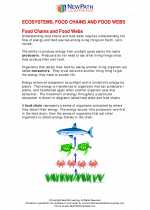
 Activity Lesson
Activity Lesson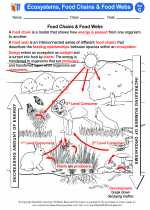
 Worksheet/Answer key
Worksheet/Answer key
 Worksheet/Answer key
Worksheet/Answer key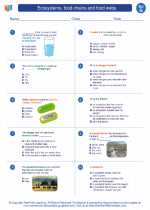
 Worksheet/Answer key
Worksheet/Answer key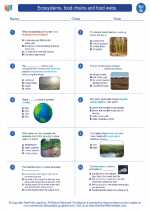
 Vocabulary/Answer key
Vocabulary/Answer key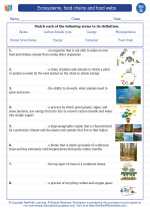
 Vocabulary/Answer key
Vocabulary/Answer key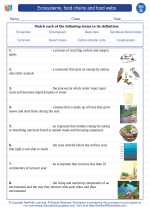
 Vocabulary/Answer key
Vocabulary/Answer key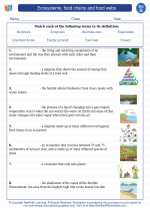
 Vocabulary/Answer key
Vocabulary/Answer key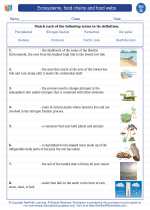
 Vocabulary/Answer key
Vocabulary/Answer key
